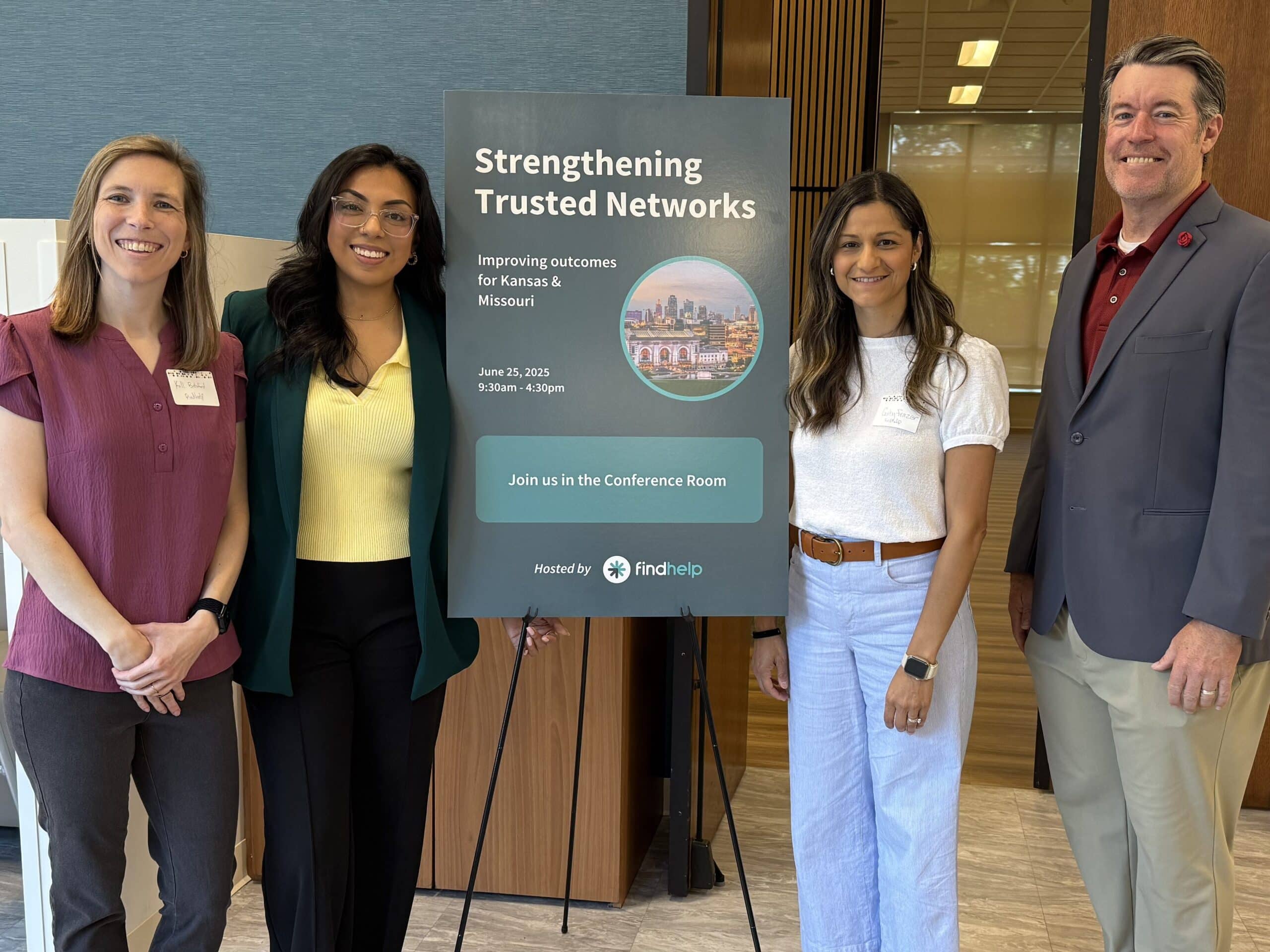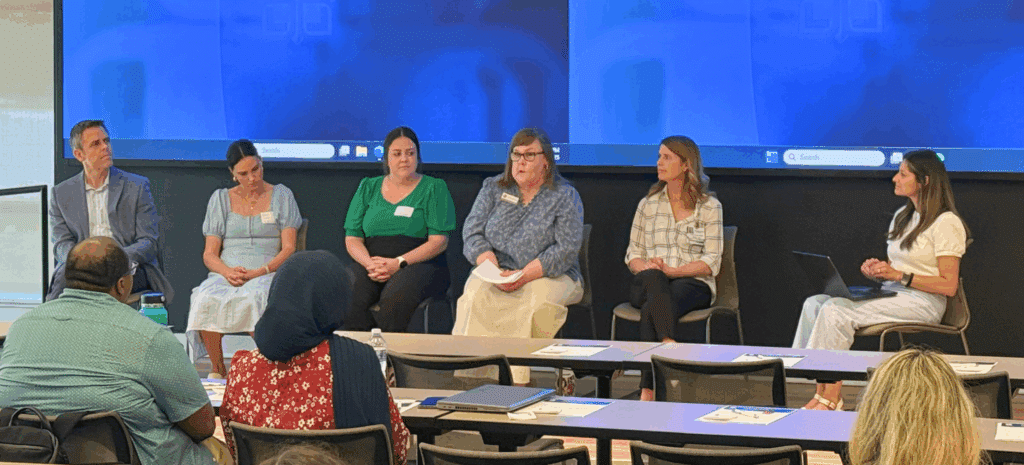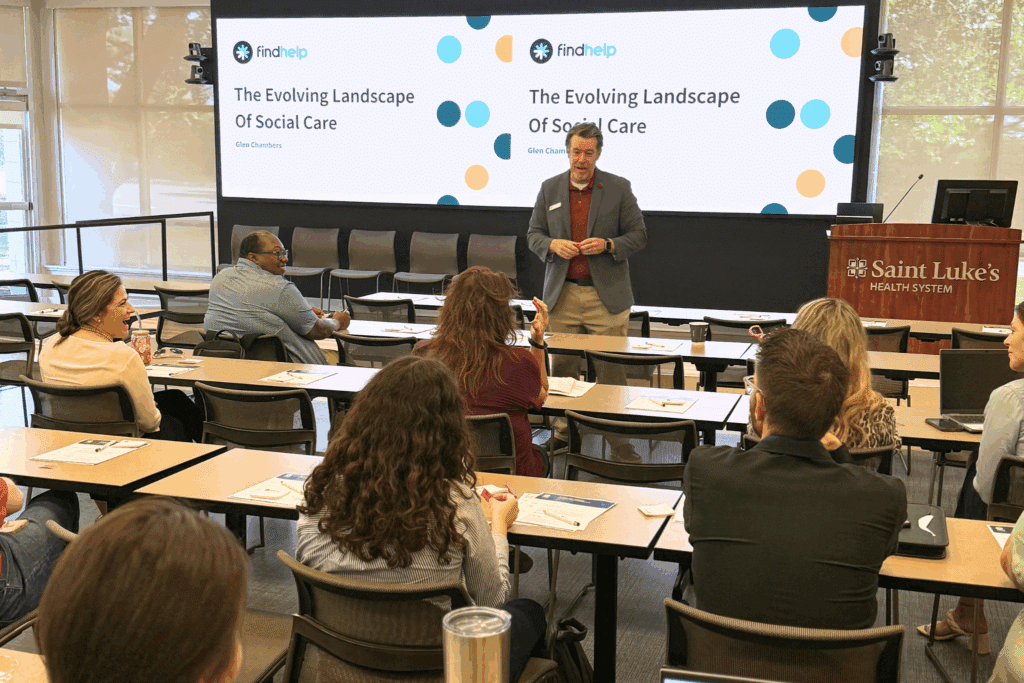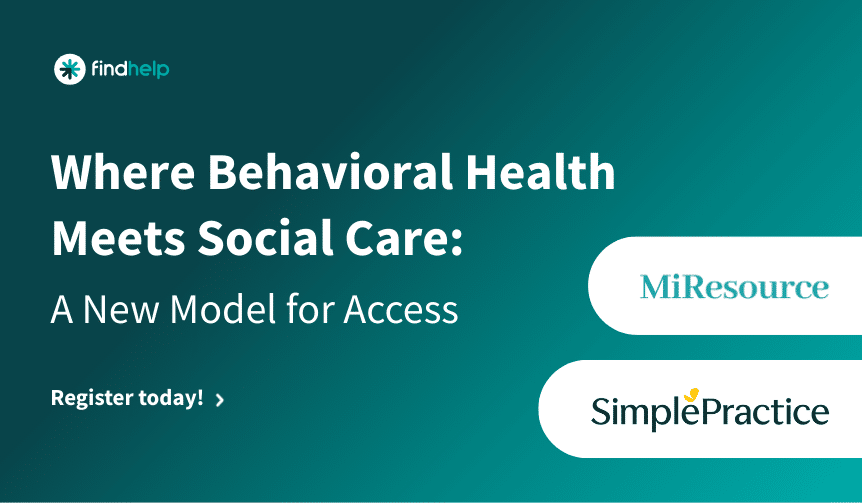Kansas City Social Care Summit: Trusted Networks and Community Wellbeing
Findhelp recently hosted an in-person Summit onsite at our customer St. Luke’s Health System, where we discussed Kansas City social care: how to strengthen Trusted Networks and improve regional outcomes. We brought together local leaders, healthcare organizations, and community groups to explore collaborative strategies.
In this post, you’ll learn about:
Children’s Mercy’s and Mosaic Life Care’s Trusted Networks of community partners
The regional Kansas City social care landscape
Innovative initiatives from Findhelp’s diverse Kansas City customers

Highlights from the 2025 Kansas City Summit
This year’s summit highlighted case studies and best practices for building and maintaining Trusted Networks of engaged health and social care providers. 25 participants from 17 organizations across Kansas City and Missouri joined us, representing local and state government, health care, nonprofits, and more.

We’re grateful to the Summit participants for their contributions and invaluable insights in shaping these discussions. Below are some of the key themes and takeaways from a day of learning and sharing.
Building bridges: Trusted Networks in action
We help our customers build long-term relationships, high levels of engagement, and increased closed-loop referral rates. There is value in deep, committed partnerships to maximize impact and increase funding opportunities. Partnerships take time and they take work. This is why Findhelp created Trusted Networks – tight-knit networks of priority partners that establish deep, long-term relationships which lead to better health outcomes for individuals in need.
“An important part of our strategy was to position our Findhelp platform as a community asset for the benefit of everyone. We get 1,500 to 2,000 users a month, and this speaks to Findhelp’s mission of dignity and ease by letting people search and connect to resources on their own.”
Luke Harris
Sr. Director of Operations & Population Health Management
Children’s Mercy
In this panel, Mosaic Life Care, Children’s Mercy, and Bishop Sullivan Center shared their experiences in building and leveraging Trusted Networks. They delved into practical strategies and the real-world impact of strong relationships between healthcare providers and CBOs:
- Defining strong partnerships | Successful partnerships are characterized by clear communication of an organization’s mission and capabilities, as highlighted by Bishop Sullivan Center’s focus on specialized areas.
- Measuring success beyond ROI | While traditional ROI can be challenging to calculate, particularly in the healthcare space, success is measured through referral dashboards, closed-loop referrals, and qualitative data like success stories. The ability to track and report on closed needs is a common goal.
- Addressing CBO challenges | CBOs face challenges with both managing heavy intake and tracking referral updates. Solutions include dedicated Findhelp case managers, utilizing email notifications and real-time update capabilities within the Findhelp platform.
- Consent and data sharing | The panelists prioritize patient privacy when building Trusted Networks, with legal teams ensuring consent mechanisms are in place for sharing information. Findhelp is HIPAA compliant, and its platform includes consent checkboxes. Some organizations implemented additional levels of data sharing authorization with their chosen partners.
- Collaborative referral management | The responsibility for following up on referrals often lies with the social care worker who initiated it. By leveraging Findhelp’s tools, customer navigators don’t need to directly contact the CBO (and vice versa) to update referral statuses, providing a seamless experience and real-time updates.

The evolving landscape of Kansas City social care
Drawing on Findhelp’s extensive experience with state-led initiatives, our SVP of Government Affairs, Glen Chambers, led a keynote highlighting the continued commitment from governmental entities and states to integrate social care. They provided an overview of the current SDoH landscape in Missouri and across the country.
- Government commitment | States across the political spectrum are demonstrating a strong and ongoing commitment to integrating social care, with Findhelp playing a significant role in many state-level initiatives across the country (including with the Missouri Department of Education).
- Navigating policy changes | While federal policies and potential cuts to Medicaid introduce uncertainty, states are employing creative funding methods to minimize negative impacts and prevent provider closures. The future of 1115 waivers can be supported with specialty networks (like AIDA Healthcare) and can further streamline our customers’ and partners’ efforts within the social care landscape.
- Social needs screening and reimbursement | The intention behind social needs screenings in hospitals is to collect data, and current regulations allow for reimbursement. While standard screenings might not always count for navigation codes, the focus is on encouraging physicians to screen and get reimbursed, with the potential for requirements to expand to navigation and referrals.
- Adaptability to policy shifts | Findhelp’s platform is designed to accommodate changing screening tools and evolving policy landscapes, allowing organizations to adapt their strategies based on federal administration cycles and new regulations.

Driving impact: Innovative regional social care initiatives
A panel of community leaders at Findhelp customers Kansas Children’s Service League, Blue Cross Blue Shield of Kansas City, Children’s Mercy Kansas City, and St. Luke’s Health System shared their organization’s unique approaches and successful programs aimed at strengthening communities.

They highlighted collaborative strategies, impactful initiatives, and the power of partnership in creating a more integrated Kansas City social care support system:
- Accountability and data-driven impact | Organizations like Blue Cross and Blue Shield of Kansas City emphasize being accountable for impacting people’s lives, using Findhelp to collect data and reports to demonstrate success.
- Strategic investment in social care | Many Findhelp customers are “going all in” with their social care strategies, encompassing screening workflows, technology investments, and robust referral infrastructures.
- Importance of “super users” and training | Panelists emphasized how crucial consistent education, communication, and regular user group feedback sessions are for successful integration of Findhelp into daily workflows, especially given staff turnover. Creating “super users” or “champions” who build relationships with CBOs is highly effective.
- Community asset approach | Organizations like St. Luke’s and Children’s Mercy position Findhelp as a “community asset” to benefit everyone, leading to significant site visits and self-service resource connections for individuals.
- Maintaining resource accuracy | Panelists lauded Findhelp for our program accuracy and responsiveness to feedback, ensuring the resource directory remains a “living, breathing document” rather than an outdated “rolodex” or “static binder.” The platform’s flexibility allows program managers to make real-time updates.
- Collaborative ecosystem | The session highlighted the power of partnership, with participants acknowledging that they are “all in this together” and can help each other improve information and outcomes for families and the community.
“CHWs often have a rolodex of resources but it’s personal and not transferable to other staff, and it’s out of date quickly. That’s the point of Findhelp–collectively updated. Living, breathing network instead of a static binder.”
Kristin Repp
Director of Population Health
Saint Luke’s Health System
Findhelp’s innovation hub: New features, future directions
Ty Harnden, a Sr. Account Executive at Findhelp (and long-time Kansas City resident!) showcased our most recent product releases, and provided an exclusive look at what’s coming down the pipeline, including our work with 1115 waivers and specialty networks (like AIDA) that can further streamline your social care efforts.
- Continuous platform evolution | Findhelp is constantly developing new features to enhance organizations’ ability to address SDoH, with a focus on streamlining efforts within the social care landscape.
- AIDA Healthcare integration | We’re integrating with AIDA Healthcare to facilitate easier connections for post-acute referrals. This integration aims to understand eligibility, remove red tape, and increase access within the post-acute referral process.
- User feedback drives development | Ty shared the ways that Findhelp actively seeks user feedback to shape the future direction of our platform and features.

Beyond the Summit: our work in Kansas & Missouri
Our network spans the entire Sunflower and Show-Me States and individuals across the region use the Findhelp platform to find and connect to needed services and support.
- 11,250+ listed programs serving Kansas & Missouri
- 2.2 million users
- 7.3 million searches for resources
- 22,200+ social needs assessments completed
As of June 2025, Findhelp partners with more than 22 customers throughout the state to connect their patients, members, students, constituents, and clients to local resources. Our data and analytic tools can identify gaps in services and provide actionable insights to inform strategy and public policy.

Keep learning: join our nationwide community
Findhelp partners with customers and community organizations nationwide to collaborate on social care. There are many opportunities to join the movement and get involved – connect with a Findhelp team member to learn more about how we can partner with your organization to address social needs and improve health outcomes for the people you serve.








